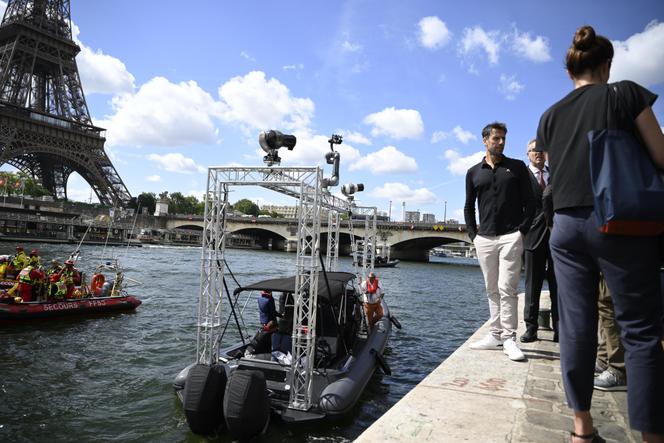


During the two big weeks of competition, the 2024 Paris Olympic Games in Paris will be aired throughout the world almost nonstop between July 26 and August 11. But whichever country you watch from, the footage you watch will not be filmed by the channel broadcasting the Games to you: Instead, that is the responsibility of the Olympic Broadcasting Services (OBS), owned by the International Olympic Committee (IOC).
As powerful as it is secretive and capable of deploying considerable resources, OBS, employs 160 people of some 30 nationalities in Madrid and is far from being a company like any other. For the Paris Olympics, it will be relying on 8,000 professionals from 100 countries, as well as 1,200 French students from media schools who will be in charge of the technical and editorial aspects, for which they will be paid.
"OBS is the IOC's technical arm. The media are totally subservient to it," said a seasoned Olympics insider. "The broadcasters depend entirely on OBS for their images. Without them, they can't do anything," agreed Jean-Loup Chappelet, honorary professor at the University of Lausanne in Switzerland.
The IOC subsidiary not only oversees the world's media, it also influences the host country's decisions and public policies. "OBS really were the kings," recalled a former public stakeholder involved in the Games, having witnessed firsthand the preparation for the Paris Olympics. "They wanted to pour concrete in the middle of the Parc de Versailles [site of the equestrian events] to erect a mast so they could have a camera with a bird's-eye view. We pointed out to them that it wasn't possible," he said, still finding this amusing. "The OBS representatives wanted what they felt was the best place for the image, without taking into account the historical and symbolic aspect of the château," confirmed another journalist, who wished to remain anonymous. At the Rio Games in 2016, OBS won the right to build its temporary studio right in the middle of Copacabana beach.
The November 24, 2023 publication in the Journal Officiel of a decree allowing weekly time off to be suspended in companies involved in the broadcasting or organization of the Paris 2024 Olympic Games, was seen by several observers as yet another sign of OBS lobbying. Bernard Thibault, co-chairperson of the committee overseeing the labor charter adopted for the event, was quick to lodge a "dispute" with OBS over the exemption from weekly time off. "All the unions were opposed. This is mainly at the request of an IOC subsidiary, Olympic Broadcasting Services (...), which explained that it needed its teams to work around the clock," he criticized in an interview with Le Monde in early January.
You have 75% of this article left to read. The rest is for subscribers only.
